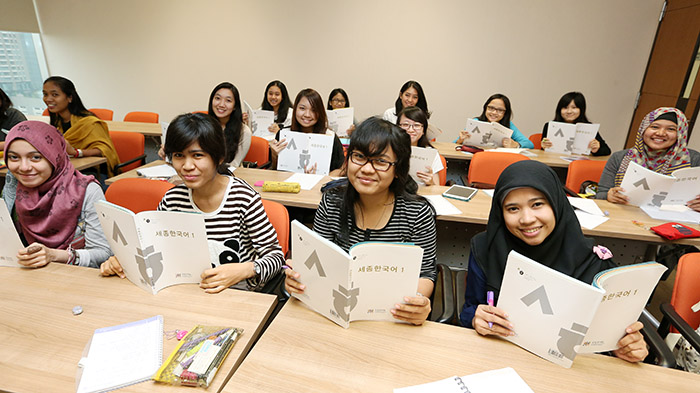the allure of Korean culture, known globally as the Hallyu Wave, has transcended borders, captivating hearts and minds across continents. This cultural phenomenon, propelled by the meteoric rise of K-pop, Korean dramas, and cinema, has not only elevated South Korea’s global standing but has also ignited a worldwide interest in learning the Korean language. Amidst this cultural renaissance, the establishment of King Sejong Institutes has played a pivotal role in promoting Korean language and culture, marking a new chapter in South Korea’s soft power diplomacy.
The Rising Tide of Korean Language Enthusiasm
The fascination with Korean culture has led to a surge in demand for Korean language education worldwide. Enthusiasts, eager to delve deeper into the nuances of Korean dramas and songs, or simply to connect more intimately with Korean culture, are increasingly seeking avenues to learn the language. Universities around the globe are expanding their Korean language programs, and online platforms are witnessing unprecedented enrollment in Korean courses. This surge in interest is not merely a trend but a testament to the profound impact of Korean culture on the global stage.
King Sejong Institutes: Beacons of Korean Language and Culture
At the heart of this linguistic and cultural propagation are the King Sejong Institutes, named after the revered 15th-century Korean monarch who commissioned Hangul, the Korean alphabet. Established by the South Korean government, these institutes serve as official hubs for Korean language education and cultural exchange worldwide. Their mission is twofold: to make Korean language learning accessible globally and to foster a deeper understanding and appreciation of Korean culture.

Since the inauguration of the first centers, the network of King Sejong Institutes has expanded rapidly, reaching learners in dozens of countries. Each institute offers a range of language courses, from beginner to advanced levels, alongside cultural programs that immerse students in the richness of Korean traditions, cuisine, art, and history. These institutes are not just language schools; they are gateways to understanding Korea’s heart and soul.
The Role of King Sejong Institutes in Global Cultural Diplomacy
The strategic establishment of King Sejong Institutes around the world signifies South Korea’s commitment to cultural diplomacy. By exporting its language and education, South Korea extends its influence far beyond its borders, building bridges with people of diverse backgrounds. This soft power approach has the dual effect of enhancing bilateral relations and fostering a global community of Korea enthusiasts.

Moreover, the institutes play a crucial role in supporting the Korean diaspora worldwide, offering a touchstone for cultural identity and a means to connect with their heritage. For others, learning the language opens up new academic and professional opportunities, given South Korea’s prominence in technology, entertainment, and business.
The Impact of Language Learning on Cultural Exchange
The growing interest in the Korean language underscores a broader trend towards cultural exchange and mutual understanding. Language is a window into a culture’s soul, offering insights into its values, history, and worldview. By learning Korean, students not only acquire linguistic skills but also develop a deeper appreciation for the intricacies of Korean culture and society. This cultural fluency fosters empathy and bridges cultural divides, contributing to a more interconnected and harmonious global community.

The global enthusiasm for learning the Korean language, fueled by the widespread appeal of Korean culture, is a phenomenon with far-reaching implications. Through the establishment of King Sejong Institutes, South Korea has seized this unprecedented opportunity to promote its language and culture, solidifying its status as a cultural powerhouse on the world stage. As more individuals embark on the journey of learning Korean, they not only gain linguistic proficiency but also become ambassadors of cross-cultural understanding and friendship. In the age of the Korean Wave, language and education emerge not just as exports but as instruments of global unity and cultural diplomacy.